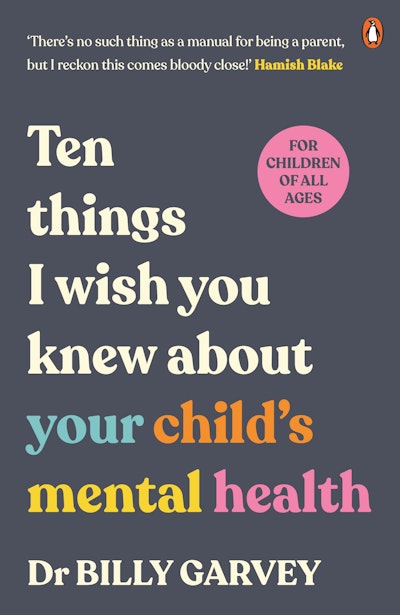Dr Billy Garvey, author of Ten Things I Wish You Knew About Your Child's Mental Health, shares some invaluable lessons that he has learnt from the teachers in his life.
My first job working with children was when I was a teenager at the Frankston City Council child care. I’d been sent there myself as a kid and hated it, so I’m surprised I even applied for the job. It paid well though, and I thought it would be pretty easy to look after kids compared to my other work in factory warehouses. I was wrong about that. That job was rarely easy, but it did influence my life more than any other job I’ve ever had. In the 6 years I worked in that role I learnt more about child development and mental health than 14 years of university and over a decade of speciality training. The kids I met in those centres were some of the most disadvantaged I’ve met in over 20 years of working with children. Poverty, disability and trauma were so common in those centres that the kids who didn’t experience those challenges stood out. Their daily struggles steered me towards becoming a developmental paediatrician. They also guided my research journey, most recently in my PhD exploring how best to build the capacity of teachers to identify and support mental illness in students.
In my journey learning how to change the trajectory for these kids, I’ve been fortunate to spend time with some of the brightest minds and most passionate professionals working with children. A great deal of my advocacy work involves sharing what I’ve learnt along the way. In 2019 I was awarded a Churchill Fellowship to explore how we can utilise media to share the science of child development and mental health with the community. The Pop Culture Parenting podcast was the first big test of this experiment. My book, Ten Things I Wish You Knew About Your Child’s Mental Health, is the next. I hope it helps not only parents but other professionals who strive each day to improve the lives of children. Here are 3 key lessons I’ve learnt from teachers about how we can best improve child mental health.
Teachers are the most important professionals in shaping children’s lives.
Teachers spend more time in one day with a child than specialists like me will in an entire year. Their ability to understand, connect with and guide the children in their care will influence the development and mental health of those children more than any other individual outside of family. For many children, the positive influence of teachers is greater than that of family members too. Through positive, predictable, responsive and safe interactions, teachers can bring out the best in the students they support. These nurturing relationships reduce the likelihood of future mental illness and are a key therapeutic tool for children actively facing such challenges.
The best thing a school does for kids is make them a part of it.
Evidence shows us that two key protective factors for child mental health exist within schools. The first is held by individual teachers: having adults who take a genuine interest in their life shields children against adversity. These relationships can be a safe place to express feelings and seek support. The second relates to the entire school community: children who feel that they are a valued part of the school are protected from negative experiences, such as bullying and social isolation. All children should experience safety, warmth and success in their school environment.
Teachers can’t do it alone.
Our most recent data shows us that approximately 1 in 7 children aged 4 to 18 meets criteria for a mental illness in a 12-month period. If this isn’t scary enough, data also shows that the majority of these children will never see a doctor. Waitlists all around the country are increasing, and presentations of self-harm and suicide to emergency departments continue to rise. Teachers are left holding these children and their families. It is integral that we better support teachers to address this growing need, otherwise it will not only be the school that suffers but the entire community.













